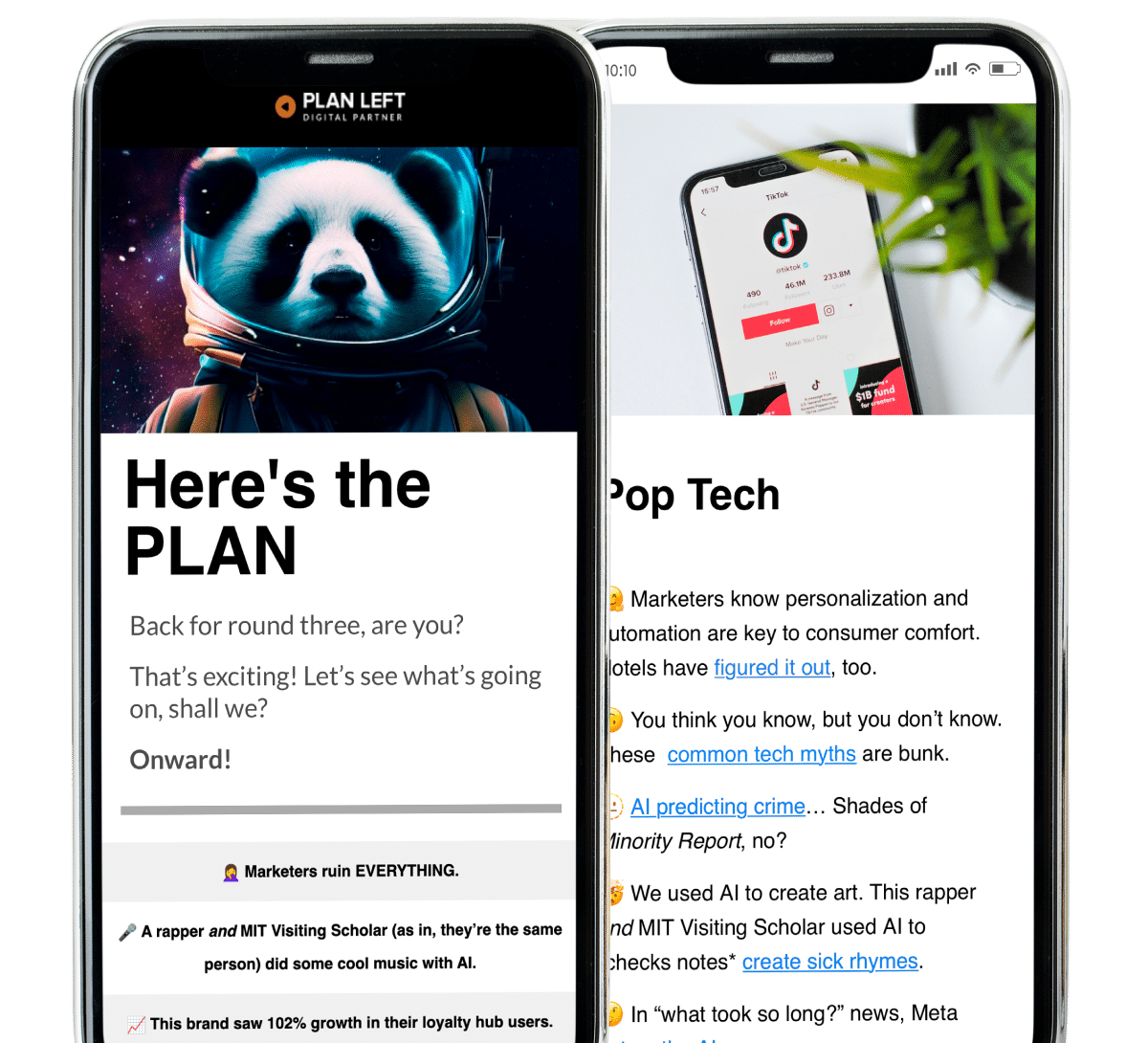Forecast Acquisitions
Our Organic Acquisition Calculator uses real data from Google to accurately predict SEO acquisitions.
Make Better Decisions
We empower you with great data so you can make truly informed decisions about where to invest your SEO budget.
Prove ROI
Proof starts with a plan. Our expert attribution planning and execution ensure effective reporting and proof.

SEO Is Only a Good Investment if It’s Good SEO.
The number one reason organizations don’t see a return on investment with SEO is that they are investing in strategies that won’t pay off quickly enough to justify the effort.
With the Plan Left Organic Acquisition Calculator (OAC), you can see the real traffic projections and level of effort metrics so that you can make truly informed decisions about what you should invest in.
We’ll build a custom path to faster ROI and long-term success.
The Hidden Costs of Incomplete SEO
- Market Position: Your competitors are using advanced SEO audits and analytics you don’t have access to, widening the gap every day
- Lost Revenue: Slow load times and poor technical optimization are actively driving potential customers away
- Local Visibility: Without strategic local SEO, you’re invisible to nearby customers using voice search and mobile devices
- Accessibility Barriers: Your non-accessible website isn’t just excluding customers—it’s hurting your search rankings
- Growth Limitations: Lack of market research and SEO foundation is capping your expansion potential and increasing customer acquisition costs
Don’t let poor SEO foundation limit your growth potential. Get the complete strategy you need.

WHAT OTHERS ARE SAYING
Don’t Just Take Our Word For It
Free SEO Review
Transform your search visibility with expert analysis that reveals hidden opportunities. Our comprehensive SEO review uncovers technical issues, identifies keyword gaps, and provides actionable strategies to elevate your rankings and drive qualified traffic to your business.
- Instant Insights: Get a comprehensive SEO analysis of your key landing page in under 2 minutes
- Strategic Direction: Receive actionable recommendations prioritized by impact and effort
- Competitive Edge: Discover untapped opportunities to outrank your competitors in search results
ROI-Focused SEO.
Objective-Based Campaigns.
Built on Transparency and Trust.
You want to grow your organization by making informed, strategic decisions that balance immediate gains with sustainable growth. We understand that sometimes SEO shouldn’t be the first strategy deployed. We always balance SEO with outbound strategies like digital advertising to ensure steady cash flow. We help you focus on data-backed and targeted strategies while staying adaptable to changing trends.
When done well, SEO leads to increased visibility, more traffic, and a stronger connection with your audience. Plan Left’s Organic Acquisition Calculator and proven processes remove the uncertainty in SEO. We create competitive, strategic, custom solutions for your organization that drive growth and prove the ROI before you spend a dime.

MARKETING insights
Join the Thousands Who Receive Our Twice-Monthly Newsletter.
It’s hard to keep up. Our newsletter is packed with buyer behavior insights, the latest marketing and technology updates, work/life balance tips, and—because we ❤️ our support staff—adorable pets looking for forever homes. Only twice per month. No clogged inboxes. You can’t say no.








